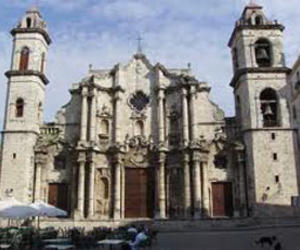Cuba releases last two in group of 75 dissidents
- Submitted by: manso
- Politics and Government
- 03 / 24 / 2011

HAVANA (AFP) – Cuba on Wednesday freed the last two of a group of 75 opposition activists detained in 2003.
Dissidents said the government released Felix Navarro, 57, a teacher and political activist, and Jose Ferrer, a 40-year-old fisherman and opposition movement member.
They were the last remaining imprisoned dissidents from the group detained by the Havana government eight years ago.
"I am in perfectly good spirits and health," Navarro told AFP from Perico, a city in Matanzas province 140 kilometers (87 miles) east of Havana.
Sayli Navarro said her father had made his way home Wednesday morning and was "very upbeat, very happy, -- and prepared to pick up where he left off in 2003."
Ferrer celebrated his release with family at their home in Palmarito, in southeastern Cuba, where he said he will resume "the fight."
The government of President Raul Castro considers the opposition "mercenaries" paid by Washington to foment unrest and threaten national security.
Rights groups say the activists were detained while protesting, and that they were doing little more than exercising their right to freedom of expression.
Most of the dissidents were charged with crimes including "acts against the independence of the state" because they allegedly received funds or other support from US-financed non-governmental organizations.
Between 2003 and 2010, 23 were freed, mainly for health reasons, while Cuba's Catholic church reached a deal to free the remaining 52 in May 2010.
From July 7 last year, 40 of the 52 were freed to go into exile in Spain, and 10 others later left prison to remain in Cuba.
Meanwhile, Amnesty International welcomed the release as "a step in the right direction" but stressed that the dissidents should have never been imprisoned in the first place.
"What we want to see now is for the Cuban authorities not to force activists into exile as a condition for their release, and to ensure all human rights activists are able to carry out their legitimate work" Amnesty's Cuba expert Gerardo Ducos said.
Source: http://news.yahoo.com/s/afp/20110323/wl_afp/
Comments